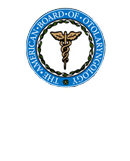Sphenoid Sinusitis: Causes, Symptoms and Treatment
Sinusitis, or rhinosinusitis, is when the sinuses become inflamed and swollen due to a viral, bacterial or fungal infection. Sphenoid sinusitis is a type of sinusitis that affects the sphenoid sinuses, which are located behind the nose and eyes. Below are the causes, symptoms and treatment options for sphenoid sinusitis.
Causes of Sphenoid Sinusitis
Sphenoid sinusitis is often caused by a bacterial or viral infection, leading to inflammation and swelling of the sphenoid sinuses. Other causes of sphenoid sinusitis may include allergies, a deviated septum and environmental irritants, such as air pollution or cigarette smoke.
Symptoms of Sphenoid Sinusitis
The symptoms of sphenoid sinusitis may include:
- Headaches, which can be severe and may worsen when lying down
- Pain and pressure in the eyes, forehead and temples
- Neck pain
- Fever and fatigue
- Dizziness or Vertigo
- Nasal congestion and discharge
- Postnasal drip
- Sore throat
- Bad breath
- Toothache
However, some people with sphenoid sinusitis may not experience any symptoms.
How to Help Prevent Sphenoid Sinusitis
Since sphenoid sinuses are deep within the skull, diagnosing and treating sphenoid sinusitis can be difficult. However, there are several steps you can take to help prevent this condition from developing in the first place, including the following:
- Practice good hygiene
- Manage allergies
- Use a humidifier
- Quit smoking
- Stay hydrated
Treatment of Sphenoid Sinusitis
The treatment of sphenoid sinusitis will depend on the condition’s underlying cause. In most cases, sphenoid sinusitis can be treated with antibiotics to eliminate the infection. In addition to antibiotics, over-the-counter pain relievers like ibuprofen or acetaminophen can relieve pain and reduce fever. In addition, nasal decongestants and saline nasal sprays can help to alleviate nasal congestion and promote drainage of the sinuses.
In some cases, if an allergy or environmental irritant causes sphenoid sinusitis, it may be necessary to avoid exposure. In more severe cases, a doctor may recommend sinus surgery to remove any blockages or abnormalities in the sinuses contributing to the condition.
Schedule Your Sinusitis Consultation Today
If you are experiencing symptoms of sphenoid sinusitis or any other sinus condition, contact New York Sinusitis Treatment to schedule a consultation. Our experienced sinus specialists can thoroughly evaluate and develop a customized treatment plan to relieve your symptoms and improve your quality of life. Do not suffer from sinusitis any longer; contact us today.













